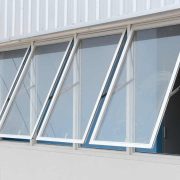Did you get frustrated by waiting in line to purchase a product from a store? How many times did you leave the store without a purchase?
Convincing people to buy a product is as important as making a sale. People these days prefer to adopt e-commerce websites that allow customers to sell services or products online. E-commerce websites are more convenient with fewer overheads, fewer risks, and high conversion rates.
The e-commerce websites that are developed with WordPress grow more. WordPress is one of the most popular CMS with a family of almost 75% websites. It has been used by most of the websites, including e-commerce. But what efforts you are making to increase your WordPress e-commerce website performance? Are you looking for some WordPress ecommerce development company to accomplish your Business requirement ?
Do not let anyone leave the website because of its slow loading speed. Page loading speed is important for every website because it affects the user experience. But it is not the only factor that affects WordPress e-commerce performance.
This article aim lies in presenting 10 ways by which you can increase your WordPress e-commerce website performance.
Follow the below ways and increase your e-commerce WordPress website performance
1. Testing for Website Speed
The testing of the page load and website speed should be done in a self-reliant environment. This can be done by using a remote server from different locations. GTmetrix and Pingdom tools can be used for this concern. This can be executed on your website’s URL and the outcomes can be checked in the areas where the improvement is possible. The speed can be tested on the store’s main page for the WordPress e-commerce website. After the completion of the test, the report will be generated that will show what exactly are the issues that are declining the speed of WordPress e-commerce website. The test results may vary from one website to another website.
2. WordPress Database Optimization
You should regularly update the WordPress database for your e-commerce website. Otherwise, it might halt the website or can notify you with an error. E-commerce websites have more entries and tables than other websites. It deals with more tables and data entries such as for pages, comments, and posts. It will be beneficial if you will create a different database for the orders and products.
Plug-ins such as WP sweep and WP-optimize would be advantageous as it scans the database and shuns away from the unnecessary fragments and overheads. This will clean the WordPress database and will enhance the performance of the e-commerce website by improving the page loading time.
3. AJAX in shopping Cart
AJAX is used for providing the shopping cart details. WordPress e-commerce plug-ins such as Woocommerce has the same aim. But, AJAX has a negative impact when it takes a long time to load the page that adversely affects the e-commerce WordPress website performance. It cannot even be sorted by adding a product to the cart, the libraries will not load even then.
Therefore, it is advisable to disable the AJAX calls and use the e-commerce plug-in to the shopping cart instead. One of the most useful plug-ins in WooCommerce Speed Drain Repair. It is beneficial for speeding up your WordPress e-commerce website.
4. Web Hosting
The e-commerce websites will be beneficial only if when you adopt good quality, reliable and properly optimized web hosting solutions. The web hosting these days are occupied with the web hosts that not regularly provides the best services. That results in declining of e-commerce WordPress website performance.
But, there are e-commerce hosting platforms that are reliable enough and are secure for your website. The aim of hosting platforms is to build and scale up online stores. There are hundreds and thousands of e-commerce hosting providers in the market. Some of the prominent hosting platforms, are Blue host, WP engine, Site Ground, FlyWheel and Pagely.
5. WordPress Caching Plugin
For a long, Caching is the best method to speed up website performance. Users should consider the reliable and the compatible plug-ins, such as W3 Total Cache, W3 super cache and W3 fastest cache. WordPress caching plugins should be compatible enough to check what it needs to cache. In the case of WordPress e-commerce websites, it is better to activate CSS and HTML minification by avoiding the JavaScript minification.
Several ecommerce plug-ins are dependent on JavaScript for loading shopping cart widgets. But it might cause problems. So, we can say that it is not a good idea to cache and minify the javascript files on WordPress blogs on WordPress e-commerce stores.
6. Content Delivery Network
Content Delivery time (CDN) is an important tool for improving e-commerce website performance. We cannot underestimate the significance of CDN. The aim of CDN lies in permitting the users for downloading the content by providing a fast web page loading time.
CDN speed ups your e-commerce website by serving the pages from the servers of geographical diverse clusters. The CDN should work appropriately with your caching plug-in. The main point that makes it different from other tools is that it has the power to meet another target marketplace. The small enterprises can also go with CDN because of their economic plans. It also offers premium plans for those you can afford and are interested in expanding their business.
7. PCI Compliance
For e-commerce websites, it is vital to follow the Payment Card Industry Data Security Standards (PCI-DSS) guidelines. It is important to secure the storage, transmission and cardholder information handling. PCI applies to the e-commerce websites that allow credit card payments. It is carried out to reduce the percentage of the attack surface.
Even if you are relying on services, such as PayPal, Stripe, and Recurly, it is mandatory to follow the guidelines set by PCI DSS.
8. Image Optimization
For improving the page load time, it is better to spare some time in optimizing the product images because images are an important factor for e-commerce websites. TinyPNG plug-in is useful for optimizing and compressing the images even when you upload them. The other method that can be used is the lazy loading of images. This method does not load the images until the users scroll down to the part where the images are placed. So, it affects overall load time because the browser cannot load the images at once. Bj Lazy Load plug-in can be used for completing this task.
As the e-commerce websites have content in image forms, the lazy loading, and optimization can help out in giving the best results.
9. SSL certificate
SSL certificate is a method to protect the information we shared online and prevents it from going in the wrong hands. It is the best manner for protecting the e-commerce WordPress websites by maintaining security among the end user and the website. Without using SSL certificates in the e-commerce websites, your personal information, like credit card. Address etc. can be compromised easily.
10. Break excessive comments into pages
When the comments on one content are more than usual, then it is useful to split that comments into pages. Because this can lead to page lag and more time in loading,ultimately reduces the e-commerce WordPress website speed. This can easily be done by navigating to discussions from settings (Settings→ Discussions). Select the number of comments you want to split. It will not only speed up the webpage but will also improve the memory consumption.
Wrapping Up
As now you can see several ways to optimize your WordPress E-commerce website performance. These factors should not be overlooked and can be used for your website’s success. Think about it as a single change that can do wonders!
If you have more ways to improve the performance than do share with us. It would be appreciated if other e-commerce websites will respond. Share your views in the comment section below.






















Comments